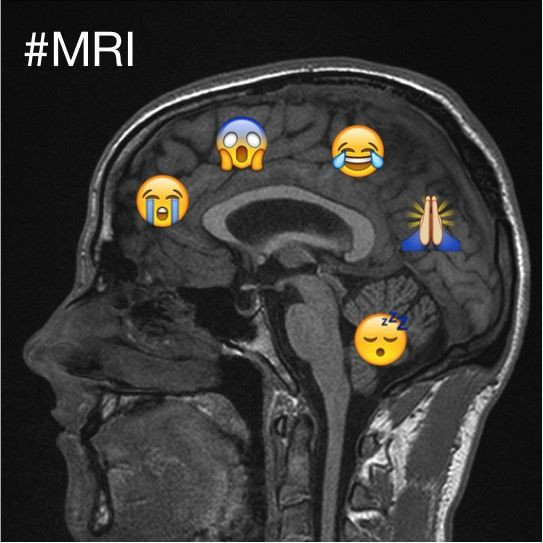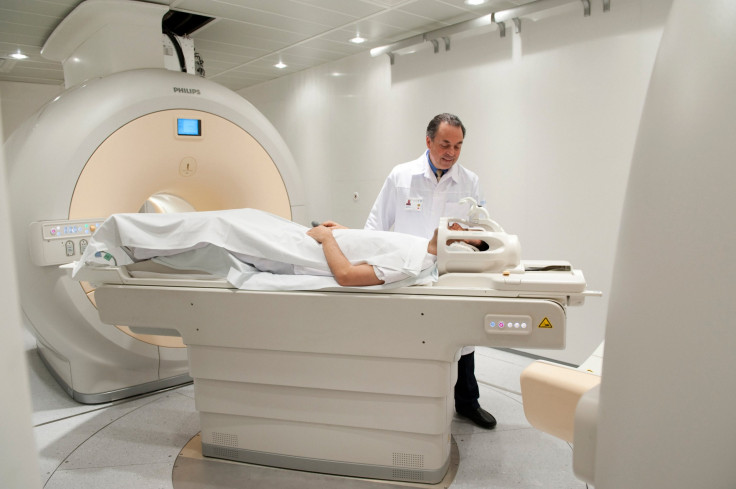Twitter May Improve The MRI Machine Experience: Tweeting Feedback Can Lead To Patient-Friendly Outcomes

Within the tight confines of a magnetic resonance imaging (MRI) machine, patients can sometimes feel scared, anxious, and claustrophobic. But researchers from Sturt University in Australia have figured out a way to address this emotional stress by turning to Twitter. Their study, published in the Journal of Medical Imaging and Radiation Sciences, explains that by tracking patients’ thoughts and feelings through their tweets, MRI technicians and radiologists will be able to improve the experience.
"The findings of this study indicate that anticipatory anxiety can manifest over an extended time period and that the focus can shift and change along the MRI journey," said the study’s co-author Johnathan Hewis, an investigator from Charles Sturt University in Australia, in a press release. "An appreciation of anxiety related to results is an important clinical consideration for MRI facilities and referrers."
For an MRI, patients either stand or lie in a tube-shaped machine that administers a strong magnetic field around the body. The human body is largely made up of water molecules, which consist of oxygen and hydrogen. Because hydrogen molecules are magnetic, they spin out of alignment when the MRI machine is turned on. The machine then records how long the tissues in the body take to realign the hydrogen. Different tissues also have different molecular alignments, which the computer records and converts into detailed images of organs and other structures within the body. This gives doctors a view into what’s going on inside the body, whether it’s tumor growth, a torn ligament, or damage to an organ, without having to make a surgical incision.

Hewis and his colleagues took to the Twittersphere for their study, where they analyzed 464 tweets related to MRI procedures over the course of one month. By looking at how patients tweeted about their MRI appointment, scan experience, and diagnosis, they believe it will help address concerns they were otherwise unaware of before they tapped into the social media feedback. Patients expressed anxiety about many different aspects of the experience, and perhaps unsurprisingly, a lot of stress over the possibility of receiving bad news.
Twitter was the targeted form of social media because, according to the Pew Research Center, it provides access to 23 percent of the adult population in America alone, allowing researchers to access millions of people. Nearly 90 percent of those users access Twitter through their mobile phones, which is why immediate feedback is easier to attain. Researchers combed through tweets discussing cost, feelings of claustrophobia, the difficulty of staying still during the scan, and this candid comment: “Ugh, having an MRI is like being inside a pissed off fax machine!”
Other tweets from patients of all ages expressed support, prayers, messages of strength, and gratitude for the health care team’s assistance throughout the process. Aside from written tweets, researchers also found photos related to patients’ MRI experiences.
"An unexpected discovery of the examination preparation process was the 'MRI gown selfie,'" Hewis said. "Fifteen patients tweeted a self-portrait photograph taken inside the changing cubicle while posing in their MRI gown/scrubs. Anecdotally, the 'MRI gown selfie' seemed to transcend age."
This feedback from patients has given those in the radiology field insight into how to improve the experience. Hewis said many people tweeted about whether they’d be able to listen to music. A familiar coping mechanism, music is an easy way to provide patients with a way to alleviate anxiety; it turns an otherwise “terrifying environment” into a plain, routine procedure.
"MRI patients do tweet about their experiences and these correlate with published findings employing more traditional participant recruitment methods," Hewis said. "This study demonstrates the potential use of Twitter as a viable platform to conduct research into the patient experience within the medical radiation sciences."
Sources: Hewis J. Do MRI Patients Tweet? Thematic Analysis of Patient Tweets About Their MRI Experience. Journal of Medical Imaging and Radiation Sciences. 2015.



























